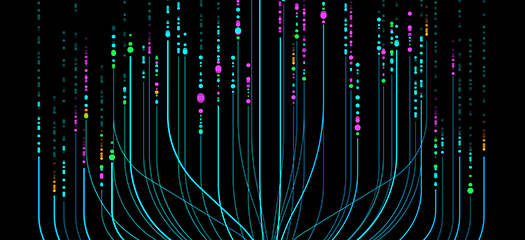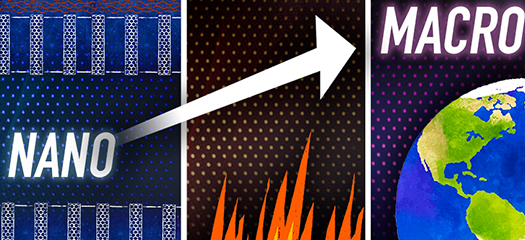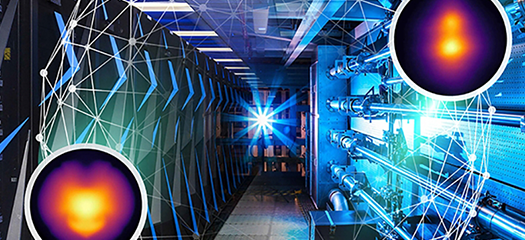Machine learning (ML) is revolutionizing scientific applications—developing new drugs, understanding cancer, creating fusion energy, inventing smart materials, and more.
At LLNL, ML has permeated virtually all aspects of our research. Our teams develop, adapt, and apply the latest advances to some of the most complex problems while using the some of the world’s most powerful supercomputers and advanced experiments.
Whether the need is representation learning to bridge the gap between computational models and large-scale experiments, computer vision and inverse problems to understand everything from satellite imagers to airport security scans, or fundamental research on ML safety and interpretability to promote trust and understanding, our unique research environment couples fundamental ML research with high-impact scientific endeavors.
Multidisciplinary teams working closely together are pushing the limits of what is considered possible. Driven by some of society’s most important challenges and enabled by ML, the future of large-scale science is happening first at LLNL.







